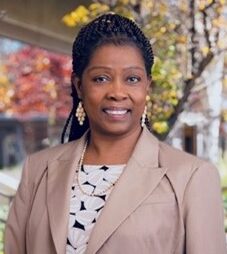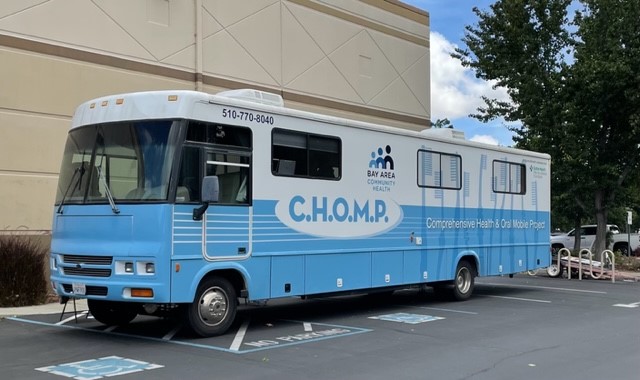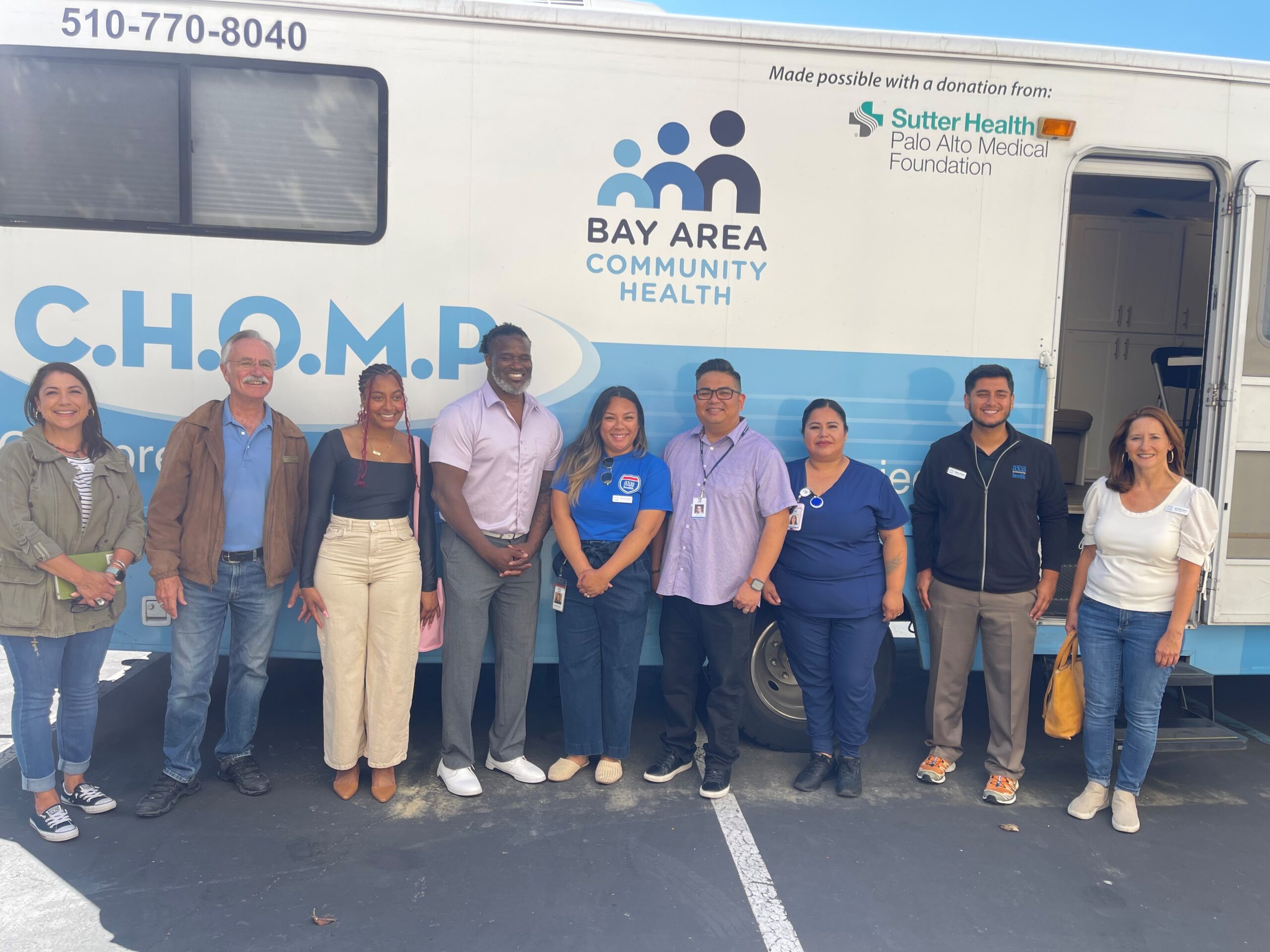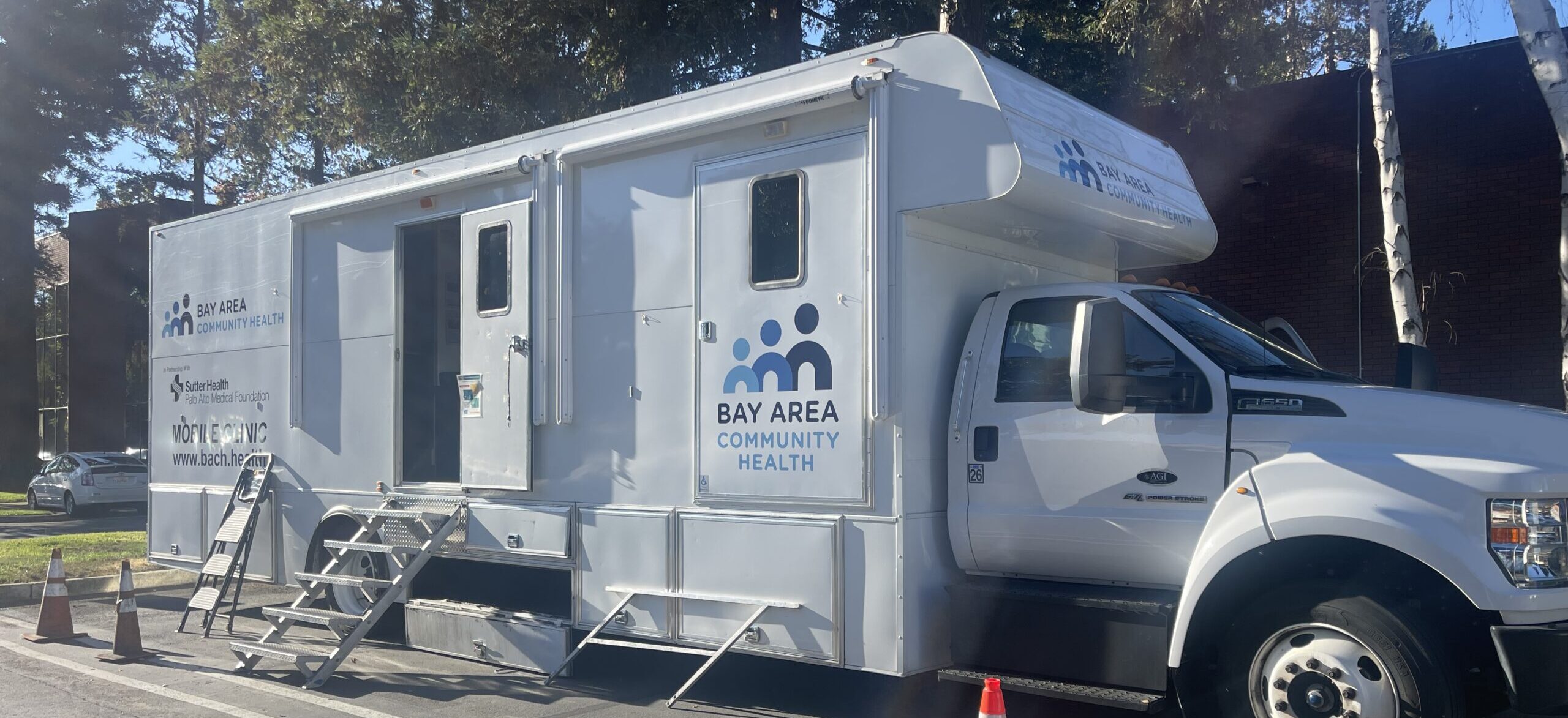Learn More about BACH’s Mobile Health Clinics
Our community health centers are mission-driven to provide the most accessible and equitable healthcare to all who walk through their doors. The providers at our member health centers are often on the frontlines of helping to carve a more direct path towards health equity by helping to remove the barriers in access to care. Through their dedication, they are often the trusted resources for our most vulnerable community members.
We recently sat down with Desrie Campbell Transportation Mobile Services Manager, at our member community health center, Bay Area Community Health to learn more about the importance of utilizing Mobile Health Clinics to bring healthcare to where people are and where there is the greatest need.
 Name: Desrie Campbell, MPA
Name: Desrie Campbell, MPA
Title: Transportation Mobile Services Manager, Bay Area Community Health (BACH)
Guiding Quote: People don’t care how much you know, until they know how much you care.
Alameda Health Consortium: Tell us a little bit about yourself.
Desrie Campbell: I was born and raised in Washington D.C. and moved to the Bay Area in 1993 and Fremont in 1996 where I realized that Fremont would be my forever home. I have raised all four of my sons in Fremont and now have three grandsons and two granddaughters, who are current students and alumni of Fremont schools.
I’ve been a public servant all my life, first serving in Washington D.C. on various campaigns for D.C. City Government, as well as working on Capitol Hill for a small Lobbying firm. After moving to California, I continued my public service by working with many community-based organizations including Fremont Education Foundation, ABODE Services, OneChild, Ohlone College Foundation, Afro-American Cultural Historical Society and Educators on Mission. I’ve also served as a Fremont Human Relations Commissioner and was the former chair of the Alameda County Commission on the Status of Women.
I have a real passion and commitment for public service and public administration. I was elected to the Fremont Unified School District Board of Education in 2012 and then to the City of Fremont City Council in 2022. Currently I’m serving on the California Primary Care Association’s Supporting Black Community Workgroup and Peer Network where I hope my knowledge and dedication for the betterment of my community will help reach more people at a larger state-level.
Earning a Bachelor of Science in Business Administration and a Master of Public Administration, I aim to continually help improve the mental and physical health for the patients we serve and to building bridges and partnerships with the community for improved living conditions.
AHC: What was it about community health centers (CHCs) that drew you to their work?
DC: As a public servant, I have been drawn to organizations that support the most at risk members of our community. I have witnessed first-hand families that suffered major illness, and not being insured, and how the system fought against these families by stripping them of their savings and forcing them to work while recovering. It was very sad to hear these stories, and even more tragic to bear witness to the suffering. Working in a community health center environment, where we’re mission-driven to always provide equitable, accessible healthcare to all who walk through our doors, I knew that the work that we’re doing is for the betterment of our underserved communities and that we’re continually working to improve health outcomes regardless of ability to pay, insurance coverage, or immigration status.
Working at Bay Area Community Health (BACH) gives me hope for many families in our communities. I know that BACH provides resources for uninsured and underinsured families that support their health and social service needs through linguistic and culturally competent and congruent methods, creating a safe space for our most vulnerable patients. It gives me comfort to know that BACH will never turn anyone away, regardless of their ability to pay. I feel fortunate to be a part of something that started out as a healthcare movement and now continually evolves to respond in innovative ways to our patients and community at large.

AHC: Tell us a little bit about BACH’s Mobile Health Clinics
DC: Part of the ways in which BACH helps break down barriers in access to care and to forge a more direct path towards health equity is by utilizing our fleet of mobile health clinics. Our mobile health clinics provide comprehensive medical, dental, and vision care. Services include health screenings, family planning, senior healthcare needs, complete dental services, vision, as well as school-based clinics that provide primary care, pediatrics, and family practice.
Manned by a provider and a medical assistant, currently our eight mobile clinics serve patients in Alameda and Santa Clara Counties.

AHC: How do Mobile Health Clinics break down barriers to access to care?
DC: Mobile health clinics can go into communities where there are great healthcare needs but not always a brick-and-mortar site, particularly in our more rural communities as well as working with our unhoused populations. We’ve also established relationships with other community-based organizations who have built their own outreach to communities that trust and rely on them. We can utilize this trust to further our relationship-building with communities in need to bring care to them and eventually get to a place where we can build our own direct relationships to communities and get them to a point where they become our patients, and we can start building a healthcare journey.
Working with local schools is also a great way for us to reach patients outside our physical clinics. Our Pediatric Mobile Clinic hosts immunization clinics for elementary students, to ensure they are ready for school as well as providing physicals for high school students participating in organized sports to help ensure that they’re healthy and strong for the demands of physical activity that organized sports can come with.
Each month, we host a Food Pharmacy at our Liberty Clinic in Fremont to help address food insecurity, our vision and dental mobile clinics also partner with several food distribution centers to offer health care services to their clients. We also work closely with elected leaders, community-based organizations, trusted messengers, to advocate for policies that promote health equity.
BACH’s partnerships include Places of Worship, Age Well Centers, Alameda County Juvenile Justice System, Mexican Consultant, Afghan Coalition, Fremont Family Resource Center, Senior and Family Community Centers in San Jose, Morgan Hill and Gilroy. We have built trusted relationships in these communities which I know in the future will help us, which positions us to be able to do even more for larger patient populations in the future.

AHC: What does the future hold for BACH and its utilization of mobile health clinics as part of its overall healthcare delivery system?
DC: Mobile healthcare is in great demand, and BACH is leading the way for this continued demand for services. In 2024, BACH will be mobilizing five new Mobile Health Clinics, providing comprehensive dental and primary care, with a dedicated focus on: migrant, recent refugee communities and unhoused people in Santa Clara and Alameda Counties.
Growing our mobile health clinics allows for a greater geographical distribution of care and services to our vulnerable communities. Our goal is to build on the trust of our patients in these hard-to-reach areas to eventually get them into our brick-and-mortar sites. This will allow us to continue to provide them with additional comprehensive healthcare needs. We want to link our patients with entire healthcare teams to ensure that we’re addressing all their needs in a holistic manner.
You can learn more about Bay Area Community Health HERE.
